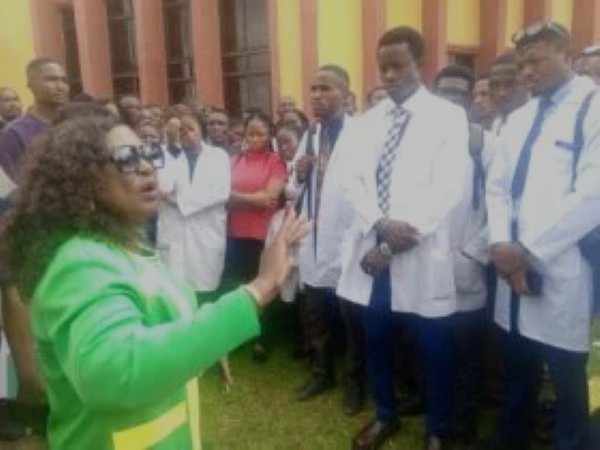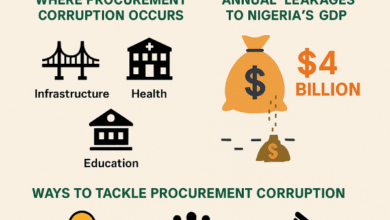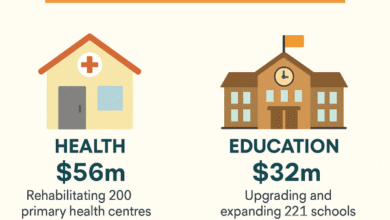UniCal VC Vows to End Dentistry Quota Crisis Before Exit

The Vice Chancellor of the University of Calabar (UniCal), Prof. Florence Obi, has vowed to resolve the lingering Dentistry quota crisis before the end of her tenure, assuring affected students of a transparent and humane approach to resolving their academic fate.
Speaking at a press conference on Tuesday in Calabar, Obi addressed the controversy surrounding the refusal of the Medical and Dental Council of Nigeria (MDCN) to induct students of the 2016 cohort in UniCal’s Dentistry programme, due to alleged violations of the regulatory admission quota system.
Background: From Accreditation to Admission Fallout
According to the Vice Chancellor, the Department of Dentistry at UniCal began admitting students in the 2013/2014 academic session, and although it eventually secured full accreditation in 2022, the MDCN raised red flags over excessive student intake.
“The MDCN approved a quota of 10 students per session. However, in 2016, over 60 students were admitted—far beyond the regulatory limit. As a result, MDCN has withheld their induction,” Obi explained.
She revealed that the MDCN had, upon granting full accreditation, instructed the university to suspend new admissions to enable it resolve the backlog and recalibrate compliance with regulatory standards.
The Quota Challenge: Inadequate Infrastructure, Unfulfilled Aspirations
Prof. Obi acknowledged that UniCal’s over-admission stemmed from a mismatch between enrolment ambitions and available facilities, which remain below the standards required to train more than 10 dentistry students per academic session.
Despite these challenges, she expressed deep concern for the affected students who have completed their training but remain uninducted and in academic limbo.
“I have a few months left as VC. It is my utmost priority to fix this issue. I can’t leave while these students are stranded. That would be a failure I’m not prepared to accept,” she stated emotionally.
Way Forward: Transfers, Upgrades, and Policy Dialogue
To resolve the impasse, the university is currently working with the Federal Ministry of Education and the Tertiary Education Trust Fund (TETFund) to upgrade UniCal’s facilities, with the hope of expanding its quota capacity and securing MDCN’s approval for the induction of the waiting cohort.
In the interim, the VC disclosed that MDCN had recommended that students exceeding the quota be transferred to other accredited institutions offering Dentistry. Some students had requested to be absorbed into the Department of Medicine and Surgery at UniCal, but Obi explained that such a move was unfeasible due to overcrowding and curriculum mismatches.
She also dispelled rumours that the Dentistry programme was being shut down.
“Let me make it clear — the Department of Dentistry is not closing. We are simply aligning with the approved quota to maintain standards and credibility,” she said.
Student Resistance and Lingering Tensions
Despite the proposed transfer arrangement, many affected students — some of whom were seen protesting in white ward coats outside the VC’s office — have rejected the transfer option, insisting on completing their programme at UniCal.
The students argue that they have spent years building their academic paths within the institution and fear the uncertainty and disruption that transfers may bring.
BRANDECONOMY INSIGHT: Quotas, Compliance and Capacity in Nigeria’s Health Education
The UniCal Dentistry saga underscores a broader crisis in Nigeria’s tertiary health education system, where universities admit far more students than they can adequately train, often due to political pressure, funding gaps, and weak regulatory enforcement.
This crisis not only undermines professional standards but also delays career progression for students and creates long-term ripple effects on the healthcare workforce pipeline.
As Nigeria pushes to increase the number of trained health professionals, especially in underserved rural areas, the challenge remains how to balance expansion with quality and regulation.
Bottom Line:
Prof. Florence Obi’s determination to resolve UniCal’s Dentistry crisis is commendable, but it will require urgent regulatory alignment, infrastructure investment, and transparent student engagement. The future of over 60 aspiring dentists — and the university’s credibility — now hinges on how quickly and equitably the resolution unfolds.











